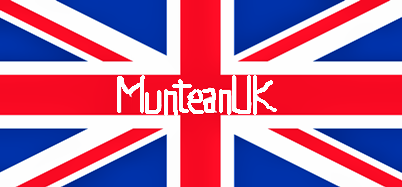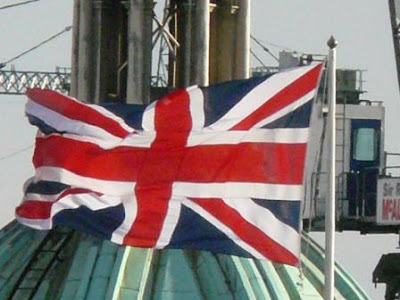
Unless our death doesn’t find us loving our enemies (following our Lord Jesus Christ at least to a 0.000...0001% degree), our life will have been utterly
meaningless.
It’s very unlikely – if not altogether
impossible – for us to find salvation as long as we don’t understand this
commandment, because loving one’s enemies is not
optional for a Christian.
St. Nikolai Velimirovich clearly understood it before his death, maybe even before he studied in the UK.
He went there to learn anything he could have learned from a secular society, wounded by nine centuries of heresy, but his faith was not ‘
contaminated’ with
dead-end humanist values.
Far be it from me to give the impression that there could be any
resemblance between me and
this Saint of the 20th century! Unlike me, he really practiced what he preached, and lived to the full his life of true follower of Christ.
But just like in St. Nikolai’s case, the more I got to know how Britons are, and found things worth of admiration (from a
contemporary wisdom’s perspective), the more I realized
how far away from Christ this so-called ‘Christian’ nation is.
Precisely because I love Britain, I can’t help telling the truth about it – the sheer inconvenient truth that
many Brits bear witness to. One such
secret of Polichinelle is that
Christianity is the target of political correctness craziness in today’s UK.
I’m pretty sure that many won’t get the essence of St. Nikolai’s prayer , but Christ’s message will always be nothing more than
insanity to any proud mind. And this is my ‘
Pascha gift’ shared with my readers this year.
May the Lord bless anyone who reads this blog post, and may He open all those hearts of ours which are still ‘
locked’ by pride, and unable to understand Him in the
only correct (Orthodox)
way as St. Nikolai did!
May we all get at least a glimpse of the seamless love for mankind that Christ showed while being crucified! May we all forgive our enemies, so that we could full-heartedly say to each other:
Christ is risen!--- --- --- --- --- --- --- --- --- --- --- ---
“Bless My Enemies, O Lord!”(from
Prayers by the Lake) – Bishop Nikolai Velimirovich
Enemies have driven me into your embrace more than friends have.
Friends have bound me to earth, enemies have loosed me from earth and have demolished all my aspirations in the world.
Enemies have made me a stranger in worldly realms and an extraneous inhabitant of the world. Just as a hunted animal finds safer shelter than an unhunted animal does, so have I, persecuted by enemies, found the safest sanctuary, having ensconced myself beneath your tabernacle, where neither friends nor enemies can slay my soul.
Bless my enemies, O Lord! Even I bless them and do not curse them.
They, rather than I, have confessed my sins before the world.
They have punished me, whenever I have hesitated to punish myself.
They have tormented me, whenever I have tried to flee torments.
They have scolded me, whenever I have flattered myself.
They have spat upon me, whenever I have filled myself with arrogance.
Bless my enemies, O Lord! Even I bless them and do not curse them.
Whenever I have made myself wise, they have called me foolish.
Whenever I have made myself mighty, they have mocked me as though I were a dwarf.
Whenever I have wanted to lead people, they have shoved me into the background.
Whenever I have rushed to enrich myself, they have prevented me with an iron hand.
Whenever I thought that I would sleep peacefully, they have wakened me from sleep.
Whenever I have tried to build a home for a long and tranquil life, they have demolished it and driven me out.
Truly, enemies have cut me loose from the world and have stretched out my hands to the hem of your garment. Bless my enemies, O Lord!
Even I bless them and do not curse them. Bless them and multiply them; multiply them and make them even more bitterly against me:
so that my fleeing to You may have no return;
so that all hope in men may be scattered like cobwebs;
so that absolute serenity may begin to reign in my soul;
so that my heart may become the grave of my two evil twins, arrogance and anger;
so that I might amass all my treasure in heaven;
ah, so that I may for once be freed from self-deception, which has entangled me in the dreadful web of illusory life.
Enemies have taught me to know what hardly anyone knows, that a person has no enemies in the world except himself.
One hates his enemies only when he fails to realize that they are not enemies, but cruel friends.
It is truly difficult for me to say who has done me more good and who has done me more evil in the world: friends or enemies. Therefore bless, O Lord, both my friends and enemies!
A slave curses enemies, for he does not understand. But a son blesses them, for he understands.
For a son knows that his enemies cannot touch his life. Therefore he freely steps among them and prays to God for them.
[For all the posts on this blog go to/Pentru toate postările de pe acest blog mergi la: Contents/Cuprins]
 [EN] They couldn’t have left water as the Lord gave it; they needed to ‘improve’ it, and to make money of their invention. [RO] Nu puteau să lase apa aşa cum a dat-o Domnul, trebuia să o fi ‘îmbunătăţit’ şi să facă bani din invenţia lor.
[EN] They couldn’t have left water as the Lord gave it; they needed to ‘improve’ it, and to make money of their invention. [RO] Nu puteau să lase apa aşa cum a dat-o Domnul, trebuia să o fi ‘îmbunătăţit’ şi să facă bani din invenţia lor.
.JPG)
.JPG)





.JPG)
.JPG)




























